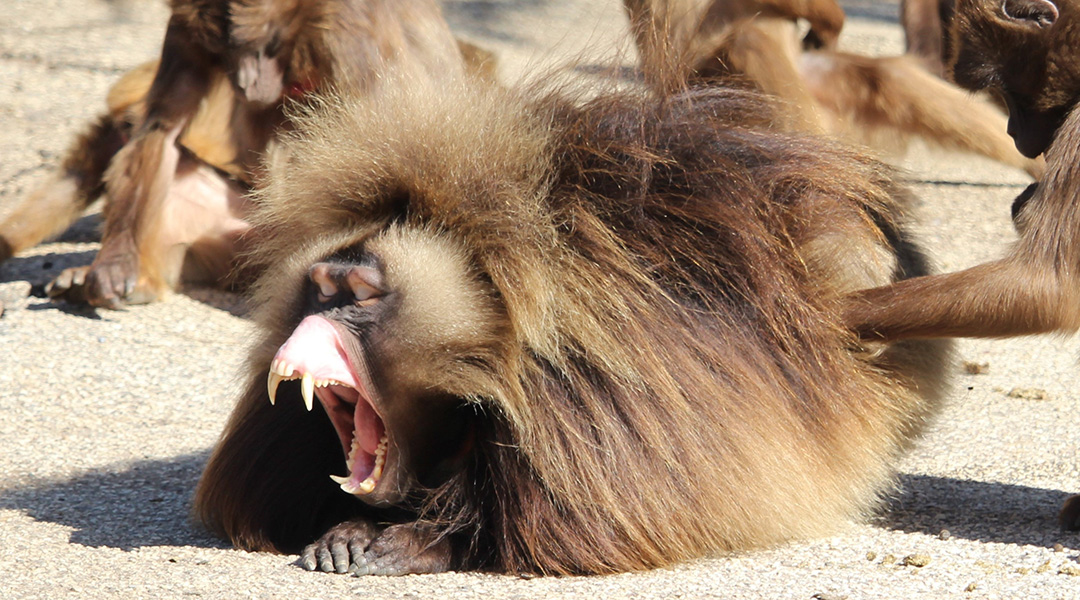Yawning is contagious in humans. When you see or listen to someone yawn, you are likely to feel one come on. Gelada monkeys are the only other species, outside of humans, to have vocalized yawns. When geladas yawn, their vocalizations are neither soft nor breathy, but can often be heard from a significant distance away. Now, research suggests that the sound of a yawn makes other geladas yawn as well, in a display of contagious behavior.
“Considering the importance of yawning in group synchronization, the adaptive value of auditory yawn contagion might be linked to the necessity for individuals to maintain acoustic contact when visual contact is not possible, especially in societies characterized by modularity and flexibility, and in species with rich communicative repertoires,” said Luca Pedruzzi, a doctoral student at the University of Pisa, Italy, and University of Rennes, France, in an email to Advanced Science News.
Yawning is also contagious in numerous other species, such as lemurs, pigs, wolves, dogs, lions, spotted hyenas, and monkeys. But for humans this susceptibility also extends to simply hearing a yawn, especially when the person yawning is known. Since geladas are the only other species to yawn audibly and loudly, Pedruzzi and colleagues wondered if geladas might behave in a similar manner.
To answer their questions, the researchers carried out a set of experiments at the NaturZoo Rheine, in Germany, which houses the world’s largest captive colony of geladas. A total of 106 geladas live in two adjacent enclosures with a pond offering a buffer zone. Each group enjoys access to both indoor and outdoor spaces.
Owing to the hourglass-shaped, red patch on their chests, geladas are commonly called bleeding heart monkeys. Endemic to Ethiopia, these monkeys live in complex societies with core units often consisting of one adult male and several adult females along with their young ones and another male. Core units can also be all-male, comprising adolescent and young adult males that have left their parental units.
The researchers subjected 33 geladas — after painstakingly recognizing and naming — to a series of playback experiments in the outdoor sections of the enclosures. To begin with, they recorded a variety of yawn sounds from male adults for the test track and grunt sounds for the control. Then, the geladas heard the sounds of yawns or grunts recorded from males in their own group or the other group.
The scientists found that the sound of a yawn alone induced yawning in geladas. Audible yawns led to an increase in the likelihood of yawning, eliciting more yawns in listeners, irrespective of their sex. Moreover, listening to yawns recorded from members of their own group led geladas to yawn more frequently.
“These findings illuminate the evolutionary parallels between humans and geladas, unveiling a captivating link between yawn contagion, auditory communication, and empathic behaviors,” said Pedruzzi.
The research group hopes to explore yawn contagion in wild populations of geladas. “However, as yawning behavior is one of the most ancestral behavior, we do not believe that strong differences can arise according to rearing condition,” added Pedruzzi.
Reference: Luca Pedruzzi, et al., The sound of yawns makes geladas yawn, Scientific Reports (2024). DOI: https://doi.org/10.1038/s41598-023-49797-5
Feature image credit: Martina Francesconi















